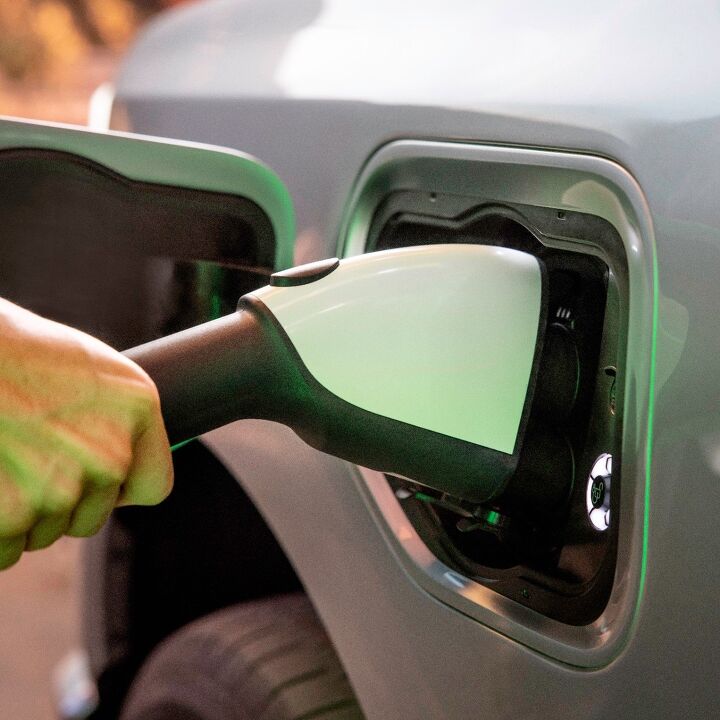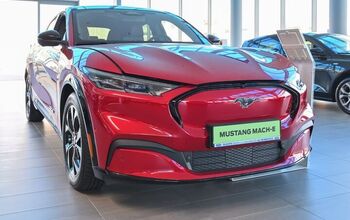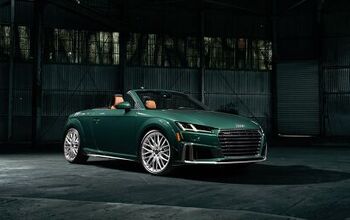NY Judge Pauses Ford’s EV Dealer Requirements

A New York judge has halted Ford and Lincoln from instituting a specific set of requirements before allowing dealerships to sell the brands’ all-electric vehicles. This comes after five stores operating within the state launched a lawsuit against Ford Motor Co. for introducing a new certification process for EVs. The issue was that the automaker was asking too much from dealerships and effectively favoring those with deeper pockets by forcing changes that required significant financial investments.
Ford introduced its tiered dealer program nearly twelve months ago, splitting stores interested in selling electric into “Model e Certified Elite” and “Model e Certified.”
The former required an investment of roughly $900,000 for the installation of two DC fast chargers and some tweaks to ensure customers see them and can tell the location is able to sell EVs. It also requires an additional investment of $300,000 to have a third charger installed by 2026. In exchange, dealers are given access to demo vehicles and a factory guarantee for limited EV allocations.
Meanwhile, Model e Certified stores needed to drop $500,000 on a single charger that’s publicly visible. Those dealerships are likewise given the ability to sell Ford and/or Lincoln EVs. But they are not guaranteed allocations nor any demo models.
While stringent dealer requirements are nothing new from the industry, they also have a tendency to backfire. Demanding dealers to make sizable investments can help improve the customer experience and help move product. But asking for too much can likewise mean offending the people that move said product.
For example, Cadillac’s Project Pinnacle resulted in years of conflict between General Motors and dealer networks — forcing the scheme to undergo repeat changes as stores simply dropped out. GM had simply asked for too much and only saw showrooms playing ball after repeat revisions. These things are commonplace and finding the balance between necessary and overbearing change can be difficult.
Something like the above may actually work out okay for Lincoln. With the brand shrinking, Blue Oval has been hoping to reduce the number of dealerships while instituting a limited number of standalone boutique retail experiences. Lincoln is hoping to focus on creating a desirable, upscale atmosphere and treating customers exceptionally well — separating itself from the core brand both physically and spiritually.
Shifting back to Ford, the company was distressed that dealerships were putting such ludicrously high markups on its EVs as they came to market. By forcing an investment, Blue Oval was presumably trying to weed out which stores were serious about selling EVs and which simply wanted to cash in while they were hard to source. Part of Ford’s new certification process also requires dealerships to agree to fixed pricing.
Overpriced automobiles have become a serious problem in recent years, with dealers frequently adding thousands to in-demand or low-volume models. However, the issue seems to be solving itself as an ailing economy means fewer people can afford new vehicles. Still, Ford wants some guarantee that dealers selling electric cars are seriously committed to offering them long term and in a manner that reflects well on the brand.
Ford has said the program would be entirely voluntary, adding that dealers could opt-in to the EV certification programs later on. This was also the argument it used in court, adding that out of spec dealerships can still sell everything else in Ford’s lineup.
Truth be told, it probably won’t have been an issue in most other states. But New York law stipulates that dealerships demanding a review of any agreement modifications require a mediation process before it can come into effect.
New York's Franchised Motor Vehicle Dealer Act simultaneously forces companies to provide their dealers with at least 90 days of notice before making changes to the agreement. In the case of requests that would physically change the facility, 180 days are required. All five plaintiffs going against Ford have said they were given insufficient notice on the latter item as it pertains to EV fast chargers.
According to Automotive News, Suffolk County Supreme Court Acting Justice James Hudson ruled that Ford had adjusted its dealer relationship to prevent non-participating retailers from selling and servicing EVs that they were allowed to prior to the certification scheme.
"The question before the Court is not whether the Programs are 'reasonable' nor whether participation is 'voluntary,'" Judge Hudson explained. "Instead, the question before the Court is whether the effect of Ford's electric vehicle Programs modifies the franchise business relationship. Each states that a non-participating dealer may neither sell nor service Ford EVs. This is a significant change in the current business model."
The assumption is that dealerships that didn’t want to spend the money have effectively been forced out of selling an entire vehicle segment they previously had access to. We’ll have to wait and see how things progress in New York’s Suffolk County. But Ford’s defense that those shops can simply opt-in later has worked in legal disputes launched in other states.
[Image: Ford Motor Co.]
Become a TTAC insider. Get the latest news, features, TTAC takes, and everything else that gets to the truth about cars first by subscribing to our newsletter.

A staunch consumer advocate tracking industry trends and regulation. Before joining TTAC, Matt spent a decade working for marketing and research firms based in NYC. Clients included several of the world’s largest automakers, global tire brands, and aftermarket part suppliers. Dissatisfied with the corporate world and resentful of having to wear suits everyday, he pivoted to writing about cars. Since then, that man has become an ardent supporter of the right-to-repair movement, been interviewed on the auto industry by national radio broadcasts, driven more rental cars than anyone ever should, participated in amateur rallying events, and received the requisite minimum training as sanctioned by the SCCA. Handy with a wrench, Matt grew up surrounded by Detroit auto workers and managed to get a pizza delivery job before he was legally eligible. He later found himself driving box trucks through Manhattan, guaranteeing future sympathy for actual truckers. He continues to conduct research pertaining to the automotive sector as an independent contractor and has since moved back to his native Michigan, closer to where the cars are born. A contrarian, Matt claims to prefer understeer — stating that front and all-wheel drive vehicles cater best to his driving style.
More by Matt Posky
Latest Car Reviews
Read moreLatest Product Reviews
Read moreRecent Comments
- Sheila I have a 2016 Kia Sorento that just threw a rod out of the engine case. Filed a claim for new engine and was denied…..due to a loop hole that was included in the Class Action Engine Settlement so Hyundai and Kia would be able to deny a large percentage of cars with prematurely failed engines. It’s called the KSDS Improvement Campaign. Ever hear of such a thing? It’s not even a Recall, although they know these engines are very dangerous. As unknowing consumers load themselves and kids in them everyday. Are their any new Class Action Lawsuits that anyone knows of?
- Alan Well, it will take 30 years to fix Nissan up after the Renault Alliance reduced Nissan to a paltry mess.I think Nissan will eventually improve.
- Alan This will be overpriced for what it offers.I think the "Western" auto manufacturers rip off the consumer with the Thai and Chinese made vehicles.A Chinese made Model 3 in Australia is over $70k AUD(for 1995 $45k USD) which is far more expensive than a similar Chinesium EV of equal or better quality and loaded with goodies.Chinese pickups are $20k to $30k cheaper than Thai built pickups from Ford and the Japanese brands. Who's ripping who off?
- Alan Years ago Jack Baruth held a "competition" for a piece from the B&B on the oddest pickup story (or something like that). I think 5 people were awarded the prizes.I never received mine, something about being in Australia. If TTAC is global how do you offer prizes to those overseas or are we omitted on the sly from competing?In the end I lost significant respect for Baruth.
- Alan My view is there are good vehicles from most manufacturers that are worth looking at second hand.I can tell you I don't recommend anything from the Chrysler/Jeep/Fiat/etc gene pool. Toyotas are overly expensive second hand for what they offer, but they seem to be reliable enough.I have a friend who swears by secondhand Subarus and so far he seems to not have had too many issue.As Lou stated many utes, pickups and real SUVs (4x4) seem quite good.


































Comments
Join the conversation
I'm curious about the charger cost., $500,000 for a single charger? What am I missing here?
Uh, why are there franchise laws for individual states when there are vehicle super dealers selling in many states? Will the Your Home State Ford dealers be the next group to sue?